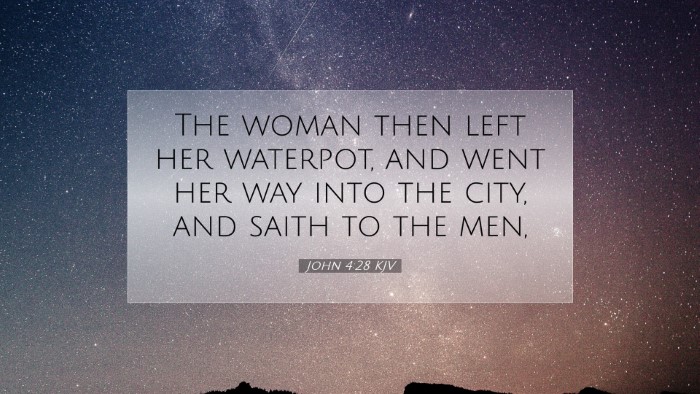Old Testament
Genesis Exodus Leviticus Numbers Deuteronomy Joshua Judges Ruth 1 Samuel 2 Samuel 1 Kings 2 Kings 1 Chronicles 2 Chronicles Ezra Nehemiah Esther Job Psalms Proverbs Ecclesiastes Song of Solomon Isaiah Jeremiah Lamentations Ezekiel Daniel Hosea Joel Amos Obadiah Jonah Micah Nahum Habakkuk Zephaniah Haggai Zechariah MalachiVerse
John 4:1 John 4:2 John 4:3 John 4:4 John 4:5 John 4:6 John 4:7 John 4:8 John 4:9 John 4:10 John 4:11 John 4:12 John 4:13 John 4:14 John 4:15 John 4:16 John 4:17 John 4:18 John 4:19 John 4:20 John 4:21 John 4:22 John 4:23 John 4:24 John 4:25 John 4:26 John 4:27 John 4:28 John 4:29 John 4:30 John 4:31 John 4:32 John 4:33 John 4:34 John 4:35 John 4:36 John 4:37 John 4:38 John 4:39 John 4:40 John 4:41 John 4:42 John 4:43 John 4:44 John 4:45 John 4:46 John 4:47 John 4:48 John 4:49 John 4:50 John 4:51 John 4:52 John 4:53 John 4:54

